It is tough to face rejection of any kind. When it comes to applying for jobs, being turned down can be especially harsh. The fact is that many candidates who face job rejection will overlook the experience as something to learn from. It is natural to avoid the discomfort of rejection, but one of the most important lessons to learn is to take advantage of the experience. Don’t let an opportunity slip through your finger.
You cannot control everything, and rejection will always be a part of life. The best thing you can do for your professional self is to overcome and learn from it with patience and positivity.
Read on these essential tips on how to navigate job rejection from employers through using feedback with intention, and bouncing back with confidence and resilience.
Don’t Question Your Worth
Before sinking into your emotions after job rejection, be sure to know your worth. No matter what, you can find value in yourself. Think of what you have accomplished, your ambition, the mere fact that you landed an interview or received a positive response. You cannot fully overcome and learn from your experience unless you recognise your qualities and believe in yourself.
Suppose you didn’t even receive an offer for an interview. If you applied to a large corporation or other organisation that receives a massive influx of resumes, there might be a chance that the algorithm meant to weed out applications didn’t see keywords to get yours flagged.
Perhaps the company didn’t choose you for other reasons separate from your ability to bring value to their organisation. A company may need to make decisions based on internal politics, salary thresholds, or timing. You may have been over-qualified for the role.
An unfortunate but known potential reason is that your interviewer could hold cultural or social bias. Or, simply, other candidates just knocked it out of the park.
Be Sure To Follow Up
Even if an employer does not choose you for a position, be sure to follow up. The best way to go about this is with gratitude, despite how upset or angry you may be. It will never benefit you to burn bridges.
If you are very disappointed, take a moment to acknowledge your feelings before you reach out. Just because it is best to take the high road, it does not mean your emotions on the matter are invalid.
The best way to follow up with an employer is to email them and say congratulations on finding the best candidate. Then, ask what exactly you can do to stay on their minds for future opportunities.
Be sure to incorporate one or two parts of your interview of which you enjoyed. This simple email could make the difference between being a forgettable candidate and a future job.
Ask For Feedback
There is a reason why people say you must fail to succeed. In addition to following up, ask for feedback. It is critical to learn from each professional interaction to grow into a well-rounded employee.
Reach out to your recruiter and through them, contact the employer. If the employer gives a generic response, claiming you were not a good fit, don’t give up. It is important to ask for details. Different perspectives and constructive criticism are key to bettering yourself in your career.
Though it may be challenging to hear, and you might not necessarily agree with the critique, still listen and learn. It will surely help with future interviews.
Give Yourself Feedback
After receiving feedback from an employer, critique yourself. Asking the following questions will take your professional growth to the next level. Write them down to remember for future opportunities.
- Were you personable?
Though you may have highlighted your extensive experience, it is important to show friendliness and charisma to make you stand out.
- Were you showcasing applicable skills?
Highlight the value you would bring to the organisation based on the job description.
- Did you connect your work history to the bigger picture of the relevant industry?
Connect your experience to current events in the employer’s industry. It will make you appear more qualified and prepared.
- Were you ready for tough questions?
Preparing for questions is essential for interview prep. Think of how you will answer what might be red flags, such as gaps in employment.
- Did you appear confident, no matter what?
Show you are ready to take on anything thrown your way. If you know you have a weakness, prove you are eager to learn and be confident that you will learn quickly. Give examples of how you’ve learned quickly in the past from work experience or extracurricular activities.
The good news is that you can only get better from here. Use each rejection as an excuse to revisit this list and make more improvements.
Turn Your Feedback Into a Plan
After you gather the necessary information, create a plan to move forward. Write down the feedback and figure out what goals you want to achieve. Goals could include a particular skill that you lack, or it could be to strengthen a skill you already have to stand out even more.
Next, plan out concrete ways to achieve your goals. Perhaps you need to attend a class online, ask a career coach for advice, or even take a lower-level job to gain more experience before you aim for your dream job.
Get Your Head Back In The Game
After you’ve done your due diligence, get back out into the field as soon as possible. Building your own sense of resilience is essential to professional development. It is also necessary to balance that thick skin with knowing your worth. Even when you do land your dream job, you will still face rejection.
No matter what, it is bound to happen some time. So accept it, learn from it, and move on.
Not everyone will nail every single interview they receive. If you are constantly growing from mistakes and experiences, you will reach your fullest potential.
About The Author
 Gabrielle Cicourel Hanley is an up-and-coming freelance writer with a passion for the sociology of work in the modern age. After working various odd jobs in different industries, she became fascinated with the components of work, bureaucracies, and other types of organisational structures. She received her Bachelor of Science in Sociology at the University of Oregon. With an additional background in communications and multimedia design, she brings creativity and precision to all her projects. Gabrielle resides in Tacoma, Washington in the United States. For more information, email gabi.cicourel.hanley@gmail.com.
Gabrielle Cicourel Hanley is an up-and-coming freelance writer with a passion for the sociology of work in the modern age. After working various odd jobs in different industries, she became fascinated with the components of work, bureaucracies, and other types of organisational structures. She received her Bachelor of Science in Sociology at the University of Oregon. With an additional background in communications and multimedia design, she brings creativity and precision to all her projects. Gabrielle resides in Tacoma, Washington in the United States. For more information, email gabi.cicourel.hanley@gmail.com.





